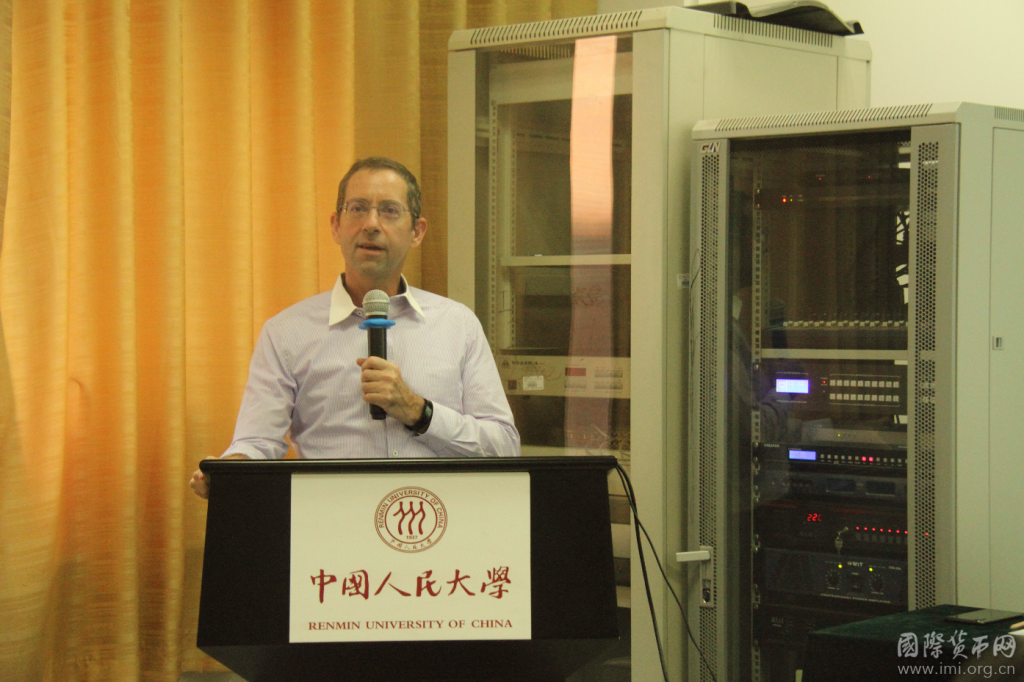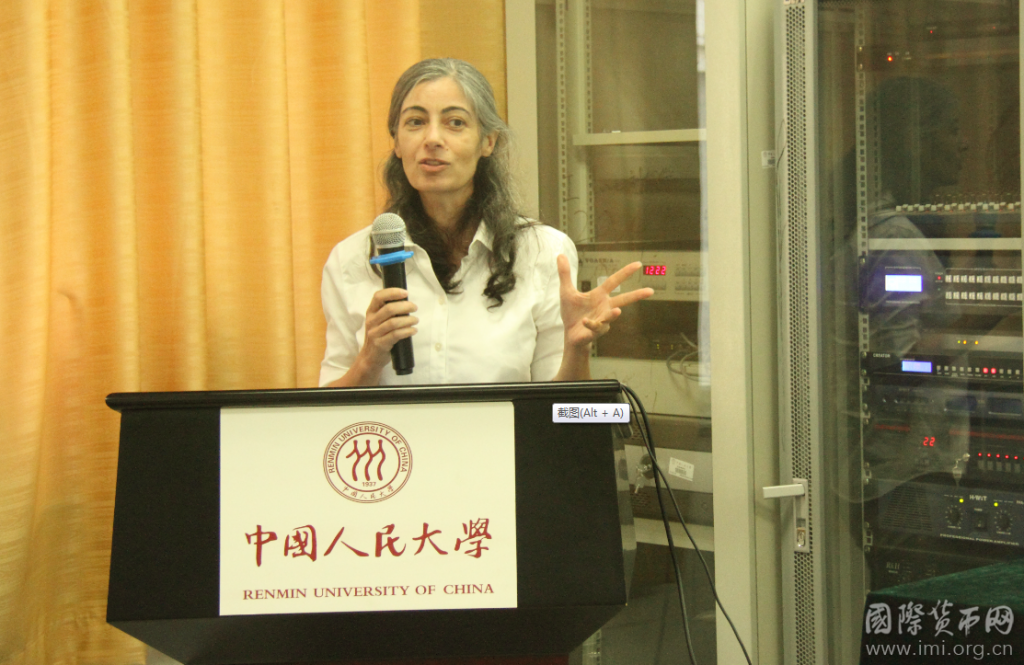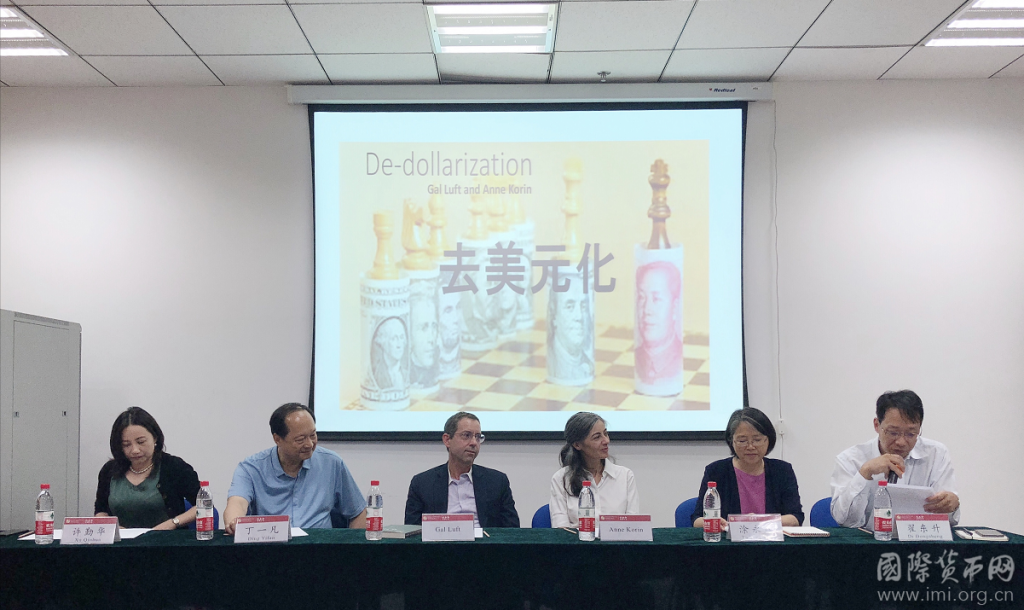Macro-Finance Salon (No. 128) and Book Launch of De-dollarization: The revolt against the dollar and the rise of a new financial world order
2019-09-16 IMI Dr. Luft said there was a quiet rebellion against American financial hegemony, but they did not believe that the Renminbi or any other currency would replace the dollar. In their study, they found that the dollar's share in the global currency basket and international trade has declined, which is conducive to the development of other currency portfolios. Therefore, the hegemony of the United States over the global economy will be weakened, and consequently its ability to maintain the huge fiscal deficit of the United States will be weakened. They predict that trade wars will evolve into currency wars, while demand for the dollar will shrink as demand for alternative currencies, gold and digital currencies increases. Commodity trading, especially oil, will become increasingly non-dollarized. "BRI" and "BRICS+" will be the main platforms for de-dollarization. The US government will continue to raise its national debt and will not be able to maintain interest rates for a longer time. Inflation will continue to expand and is likely to lead to stagflation. The world monetary system tends to be multipolar.
Dr. Luft said there was a quiet rebellion against American financial hegemony, but they did not believe that the Renminbi or any other currency would replace the dollar. In their study, they found that the dollar's share in the global currency basket and international trade has declined, which is conducive to the development of other currency portfolios. Therefore, the hegemony of the United States over the global economy will be weakened, and consequently its ability to maintain the huge fiscal deficit of the United States will be weakened. They predict that trade wars will evolve into currency wars, while demand for the dollar will shrink as demand for alternative currencies, gold and digital currencies increases. Commodity trading, especially oil, will become increasingly non-dollarized. "BRI" and "BRICS+" will be the main platforms for de-dollarization. The US government will continue to raise its national debt and will not be able to maintain interest rates for a longer time. Inflation will continue to expand and is likely to lead to stagflation. The world monetary system tends to be multipolar.
 In order to face possible crises, Ms. Korin offered their suggestions. She stressed that the most effective solution is to acknowledge the existence of the crisis and actively face it, rather than to be blindly optimistic and complacent with the status quo. She proposed reassessing U.S. financial enforcement measures and coordinating law enforcement with national and economic security. She proposed conducting serious and frank talks with the top US banks on the future loan demand and model of the United States and identifying the financial situation to sort out the fiscal deficit. She also suggested we should stay ahead in which we have already taken the lead in, and in some slightly backward fields, we should acknowledge our deficiencies and make up for them.
In order to face possible crises, Ms. Korin offered their suggestions. She stressed that the most effective solution is to acknowledge the existence of the crisis and actively face it, rather than to be blindly optimistic and complacent with the status quo. She proposed reassessing U.S. financial enforcement measures and coordinating law enforcement with national and economic security. She proposed conducting serious and frank talks with the top US banks on the future loan demand and model of the United States and identifying the financial situation to sort out the fiscal deficit. She also suggested we should stay ahead in which we have already taken the lead in, and in some slightly backward fields, we should acknowledge our deficiencies and make up for them.
 After the keynote speech, the guests commented. Prof. Ding Yifan, Prof. Tu Yonghong, and Prof. Xu Qinhua respectively put forward their own opinions and doubts on the reasons for the de-dollarization, the change of the international status of the RMB under the trend of de-dollarization, and the role of oil in the process of de-dollarization. Ms. Korin added that the United States has long recognized the risks of its own economic structure, but this understanding is not comprehensive. Some people have difficulty in understanding the actions of the Trump administration. Actually what he has done is to accelerate the disclosure of the United States’ own issues. At the end of the discussion, Dr. Luft emphasized the importance of technology. He believed that China has already taken the lead in moving to a cashless society.
After the keynote speech, the guests commented. Prof. Ding Yifan, Prof. Tu Yonghong, and Prof. Xu Qinhua respectively put forward their own opinions and doubts on the reasons for the de-dollarization, the change of the international status of the RMB under the trend of de-dollarization, and the role of oil in the process of de-dollarization. Ms. Korin added that the United States has long recognized the risks of its own economic structure, but this understanding is not comprehensive. Some people have difficulty in understanding the actions of the Trump administration. Actually what he has done is to accelerate the disclosure of the United States’ own issues. At the end of the discussion, Dr. Luft emphasized the importance of technology. He believed that China has already taken the lead in moving to a cashless society.
